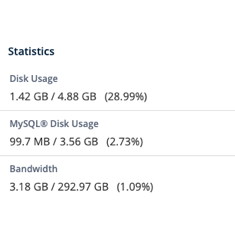Study Advice for the Level 1 CFA® exam
December 1st, 2012
Today is actually exam day, but not for me, I actually managed to pass last time. I’ve already given tips and made study materials available but I decided to take a fresh look at the material and see if I can’t provide some more useful advice now that it is too late. I may just know what I’m talking about seeing as how I passed all three CFA® exams.
My first piece of advice having been a CFA Candidate for entirely too long, is don’t download files from someone’s website and then upload those exact same files to another website where you then claim copyright for the files. This is what Abhishek Chaudhary decided to do. Now if Abhishek Chaudhary is a Member or even a Candidate in the CFA program he violated Standard I(C) Misrepresentation in my opinion.
Apparently the blatant theft of other people’s hard work and copyrighted intellectual property has become a bigger and bigger problem in the world of CFA Candidates and CFA Charterholders as Mark Meldrum has made a YouTube post on how he has had enough and decided to go after people stealing his and other people’s intellectual property. He did more than submit DMCA requests which I finally had to do, he submitted complaints to the CFA Institute and more. Apparently complaining publicly and bad Google results isn’t enough for some people to get the point that their actions were upsetting others and basically taking money out of their pockets.
I’m not sure if Abhishek Chaudhary will ever face the music, I am sure I paid dearly for my honesty and my willingness to help other people.
Read the Official Books (if you can)
First of all concerning the official study materials, I have to say despite their physical weight I prefer the books. As for 3rd party study materials I haven’t seen or tried all of them. It is possible to pass the exam without any of that, but candidates seem to spend a lot of time trying to find stuff to steal online which they imagine will make their life easier. It doesn’t matter how much material you download if you don’t read it and commit it to memory.
Do Practice Problems and Mock Exams
Practice problems is where the 3rd party study material providers can be useful. You can never do too many practice problems especially in the sections you are weakest. Determining your weaknesses is one of the big advantages rewriters have over first timers. I like the BSAS Mock exam, but any paper exam you can sit under actual exam conditions is more valuable than computer simulations. Exam day is stressful and crowded.
Once you’ve sat a mock exam and looked at your scores and the answer key you will have a much better idea where your weaknesses are and what you need to re-read. Re-reading and redoing notes/flashcards then doing more carefully chosen practice problems is the way to go. You need to get over 70% correct in most sections, with most being five or more, preferably the five with the largest weightings. That would be as of June 2012: Financial Reporting and Analysis, Ethics and Professional Standards, Quantitative Methods, Fixed Income, then Equity Investment and/or Economics. You can’t just blow off everything else, getting below 50% in a section is also bad but not fatal if it is a smaller section. You need to spend a disproportionate amount of your study time on your weakest sections.
Create Your Own Study Materials
I’m also a big fan of creating a personalized collection of flashcards. I think it is one of the best ways to learn formulas, definitions, and factoids that don’t seem to sink in no matter how many times your do a reading or attempt a practice problem. I also used the BA II Plus which seems to be the more popular of the approved calculators. The manual is thicker but apparently there are tricks you can only learn online, I’m not sure I learned them all. I learned a few such as how to calculate covariance.
Learn Everything on Level One
The order to study the material is generally the order it is presented. If you’re an absolute expert in Mathematics and/or Economics maybe you can skip some stuff, but most people aren’t as smart as they think they are, Abhishek Chaudhary, is definitely not that smart, and the CFA Level 1 exam hammers this point home but good. In my experience the people who do the best on the Level 1 exam are young undergrads who are used to studying full time and already majoring in Commerce or Finance. Even if you have a relevant degree, you get rusty, you forget, accounting rules change, etc. etc. The CFA Institute has many ways of testing the material and even though the Level 1 exam is all multiple choice, guessing will not achieve 70% in any section over the long run.
If you have six whole months use them. Register for a mock exam as soon as you can. Plan to cover all the material prior to the mock exam. That gives you approximately four months to study and two months to shore up your weaknesses and try to get fast enough to answer 200 questions correctly in under six hours. There are six books. You can not devote a month to each book. Book 3 is probably the most challenging and thus most important, but Books 2, 5, 6 are not necessarily easy or fun. Nothing is fun about the CFA curriculum. There are no marks for good teamwork, or participation, or attendance.
Working full time, hobbies, family, health can all get in the way. You need to seriously examine your priorities and reasons for wanting to pursue the CFA Charter. Studying after work is hard, you miss opportunities, but studying only on the weekends might not be enough. 300 hours is an estimate and plenty of people including myself studied more than 300 hours and still failed. So if you’re still reading I guess I’ll try to come up with some section specific advice.
Ethics
The CFA exams and official study materials are only available in English and were originally very American-centric. With the official calculators and all the formulas that have to be memorized, people neglect the importance reading comprehension plays in taking this test. This is the section where reading comprehension is most heavily weighted in the CFA Level 1 exam.
Abhishek Chaudhary definitely did not study this section carefully enough because in my opinion he broke Standard I(C) Misrepresentation by stealing files off my website and uploading them to another website where he blatantly and incorrectly claimed he held copyright for those files.
All you ever hear online is complaints about this section. Those people don’t know what they are talking about. Ethics is the best deal in the entire curriculum. Ethics is four chapters for 15% of your score. Economics is 9 readings for 10% of your score. It gets even better most of the questions from this section are covered in the first two chapters. And unlike just about every other section in the curriculum, Ethics has actual CFA Level 1 exam style practice problems in the official book. If after reading the first two chapters you can’t get 70% of the practice problems correct re-read Chapter 1 and 2. Make some notes/flashcards and then do the practice questions again.
Keep doing batches of questions on the Code of Ethics and Standards periodically as a break from all the other sections. Ultimately you need to get 70% or more of them correct to pass the CFA Level 1 exam or at least that is the Internet lore.
Quantitative Methods
There are 8 readings in this section worth 12% of your score. More importantly without a good working knowledge of statistics, probability, time value of money etc. you will have a lot of difficulty with some of the sections that follow. You have little choice but to master this material. You can definitely consult 3rd party material for this section, whatever it takes. I had 64 flash cards from this section so 18% of all my cards were from Quantitative Methods.
Economics
There are plenty of other economic text books out there, but the CFA Institute picks which areas of economics you are responsible for learning. Someone once asked me for the three most important parts of the Economics curriculum, I came up with:
- Supply & Demand (Aggregate Demand)
- The quantity of real GDP formula
- Market Structures (Perfect Competition, Monopolistic Competition, Monopoly, Oligopoly)
The CFA Institute loves questions such as:
According to income effect and substitution effect, which of the following will most likely explain the effect of a wage rate increase on the supply of labour?
- Income effect will increase the supply of labour and substitution effect will decrease it.
- Income effect will decrease the supply of labour and substitution effect will increase it.
- Income effect and substitution effect will both decrease supply of labour.
The CFA Institute loves to ask questions with stuff going up while other stuff may go up, down, or remain unchanged or involves lines crossing each other. There will likely never be any actual diagrams you will have to visualize them yourself or draw them in the margin for Level 1.
Financial Reporting & Analysis
This section is the entirety of Book 3. By the time you get to the third book of the CFA Curriculum you are probably already way behind your study schedule. You’re not doomed but doom is in the rearview mirror and gaining. This is the biggest, hardest section. You need to get 70% or higher on this section if you want to maximize your chances of passing. You will likely spend a month on just this book and likely another month reviewing this material. It is that important.
FR&A is the single section most responsible for me having to rewrite Level 1 and Level 2 then it is not in the Level 3 curriculum which is probably why I passed that exam in one attempt.
Corporate Finance
I think this section used to be twinned with Financial Reporting & Analysis, I paired them together in my flashcards. Only 26% of my flashcards are devoted to FR&A and Corporate Finance. Time Value of Money is important but not the only topic tested, you need to learn the NPV and IRR functions of your calculator but many questions won’t require a calculator at all.
Portfolio Theory
This is supposed to be a small easy section of the CFA Level 1 exam. It is weighted considerably higher on the other levels, especially Level 3. It is only worth 5% of your score in Level 1 but it is still four readings. I made only 21 flashcards initially but I had a pretty good understanding of this material prior to starting the CFA. This is another section like Economics where stuff goes up and down and lines cross. You need to be able to see the lines (Security Market Line, Capital Market Line, Efficient Frontier) and know everything about where they cross and why. You also need to know the difference between systematic and unsystematic risk basically everything there is to know about Markowitz Portfolio Theory.
Equity Valuation
By the time you reach book 5 you should have a pretty good idea if you’re going to get all the material covered before your scheduled mock exam. Most people don’t. Failure to cover all the material prior to the mock exam renders the mock exam considerably less useful.
This is another section people get overconfident on. Candidates generally do have a better understanding of equity pricing and equity markets than their fixed income counterparts but it is still a couple hundred pages you need to read/review and you’re probably already behind so some candidates don’t realize that everything between the covers is testable even footnotes and the glossary.
Fixed Income
Fixed Income isn’t just bonds, it is also t-bills, mortgage backed securities, CMOs, GICs, Treasury Strips, and a whole bunch of terminology and jargon. This is another section where you need to know Time Value of Money and how to use your calculator well. There are also a whole bunch of ‘risks’ and market theories to learn. Risk is a four letter word, so is “yield”.
These are some of the yields and risks on which you may be tested.
Derivatives
Lots of people don’t get derivatives. They don’t like them, they don’t invest in them, they don’t understand them and they are already way behind studying the CFA Curriculum. Things could actually be worse the Black Scholes Model is hardly covered on Level 1. You still need to learn puts, calls, swaps, and FRAs. The other good news is all of Book 6 is only 8% of your score, if you’re going to skip anything I guess you can skip derivatives and/or alternate investments. Lots of people bomb those sections anyway. It is possible to get below 50% on the derivatives section and still pass the exam.
Alternate Investments
In order to make the CFA Charter relevant to as many investment professionals as possible I think things like Real Estate, Venture Capital, even Hedge Funds got tacked on at the end. Alternative Investments is probably easier than the material that makes up “Derivatives”. Don’t obsess over Book 6, you’re better off spending time on Financial Reporting & Analysis, Corporate Finance, Equities, and Fixed Income. It is also popular opinion on the Internet that you must get over 70% in Ethics in order to pass Level 1. I got over 70% in four of the five biggest sections when I passed, only on Corporate Finance did I score mid-band, probably didn’t do enough practice problems.
The answer to most any CFA difficulties is to re-read the official book, memorize flashcards, and do more practice problems.
If you still can’t figure out the answer you can always consult the Internet. There are a lot of websites, blogs, and now it seems videos to help you learn the material. However the answer to every exam question must be in the six books the CFA Institute provides.
I don’t recommend blogging about your experience studying for the CFA exam, after you’ve passed all three exams then you can brag about it online and in the real world. Maybe after all these years and all these revisions to my blog it will finally become an asset but considering I could not find a job quickly and easily after passing the third CFA exam I’m not the biggest advocate of the program at the moment.
Even more thoughts about the CFA Program
I keep revising my blog especially posts about the CFA Program. I’m still a CFA Candidate and still have not seen a positive ROI from the program or blogging. I do have a lot of data and insights into what CFA Candidates are worried about due to maintaining a blog for so long. That information I will endeavour to keep up to date, but many people have benefited from my efforts, alas I am not one of them. If you have any thoughts on the CFA Program particularly the Level 1 Exam you can leave a comment below.
This entry was originaly posted on , it was last edited on and is filed under: Advice and tagged: CFA®, Exam, Finance.





I have also taken 6 months CFA level exam preparation course at Queen University in Toronto. Can you please forward me any practice exam papers have you may have attempted while preparing for the exam? My email is
removed.I may have missed this comment while i was in China or otherwise busy, but you probably don’t want your email there, I hope you did OK. I don’t have any practice exam papers to share, I think the CFA Institute provides a number of practice exams now as do third parties.
Hi Muskie,
I have downloaded your cue cards and read each and every word that you have typed in your advice for those preparing to sit the CFA level 1 exam. I would like to tell you that I have a master degree in Finance and management. I just want to know do you think 4 months will be enough to prepare for the exam that I am going to write in december 2013. I have access to all the schewer books, practice exam papers from 2010-2013, quizes and other notes. Please let me know thanks
If anything you are overqualified to take the CFA Level 1 exam, but alas it doesn’t matter how good you used to be at Finance, it only matters how good you can prove to be the day of the exam. It is a six hour exam, you have to keep up the question every 90 second pace for a long time. Four months is plenty of time to prepare, people have studied less and passed.
It is important to know some facts cold, that is why I made and memorized so many flash cards. You need to circle B and move on. Some question will take five minutes, you’ll him and haw, you have to ultimately move on from those questions too.
If you have a lot of strength at valuing financial instruments, I’d concentrate on areas not covered by your degree, Ethics, Alternative Investments perhaps, maybe part of Quant. Doing practice problems is very important, as is learning to use the official calculator. You don’t get to use Excel or the Internet during the exam, cranking through 30 or more questions a day helps build up speed. The exam is an endurance event, but the pace is also very strenuous.
Don’t forget to study accounting regulations, those things change, math never changes, time value of money never changes. Anything that can change as far as legal requirements, reporting standards, SEC rules, you need to study that from the most current official books. Learning how to value bonds you can learn from any source available. There will be stock and bond valuation questions, but there will also be questions on the differences between IFRS and US GAAP.
I don’t have any more study materials I haven’t already given away. Plenty of material is available legally and illegally online. The key isn’t to acquire the most study material, the key is to know the material thoroughly so you can get through 240 questions in six hours and average at least 7 out of 10 correct. You can afford to fail a smaller section or two. I recommend on exam day starting with either the section you find the hardest or the easiest. Also do the larger weighted sections early, if you have to rush through Alternative Investments, c’est la vie. That section is the least heavily weighted, it can be a total grab bag too as to what is covered in that section on the actual exam.
Good luck, just make a reasonable study schedule, memorize every important formula & definition and don’t underestimate the effort this exam takes or the importance of the first 2 or 3 chapters in Book 1. The CFA Institute will fail you if you don’t take their Standards and Ethics section seriously.
Great site Muskie. Many thanks for all the information. I’ll be retaking Level 1 in June 13 no doubt after last Saturday. I’ll be reading all your guidance with great interest. Best regards, David
Good luck, it is not uncommon to rewrite. Hopefully you learn from your previous mistakes and can better allocate your time to the material that is most important.